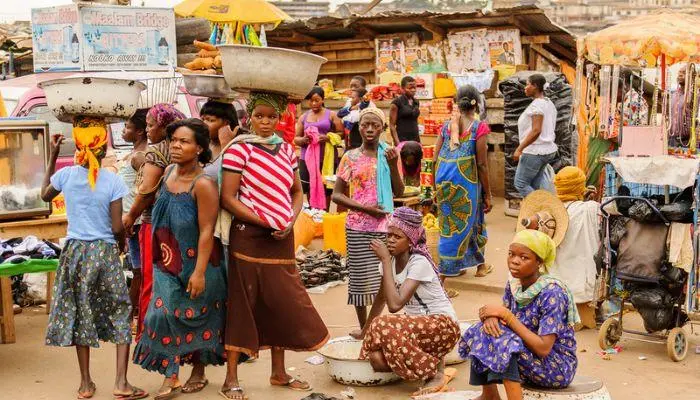By Christopher Okpoko
A recent report by Livingcost.org, a crowd sourced database with a cost of living calculator for prices comparison in 9,294 cities in 197 countries all over the world stated that the cost of living in Nigeria is $1,019, which is 1.04 times more expensive than the world average. The report ranked Nigeria 69th out of 197 countries by cost of living and 193rd best country to live in.
Similarly, the United Nations Conference on Trade and Development (UNCTAD) reported that cost-of-living crisis, is rapidly constraining household budgets. As food prices rise, household incomes fall. This has important implications for poverty and hunger levels, educational attainment and energy access. In addition, these impacts are also highly regressive, as they affect the poorest households, (especially women) the most. Its effects on food insecurity, malnutrition and hunger could be particularly alarming in the current context. Also, high food and energy prices will affect the most vulnerable in society the most, especially in developing countries, where more than 50 percent of the income of the poorest households is spent on food. According to the report, a 10 percent increase in food prices erodes the buying power of these households by more than 5 per cent, or about as much as poor families in developing countries spend on average on health.
In view of the above exposes, the recent data published by National Bureau of Statistics (NBS) put the headline inflation rate in Nigeria at 22.04 percent in March 2023, the highest for almost two decades. According to the NBS, food items contributed more to the increase in the headline index at 11.42 per cent. This trend is obviously worrisome. More so, the faster rise in food prices compared to other prices hurt poor families disproportionately due to the fact that food represents a higher share of their total consumption.
Similarly, inflation erodes real incomes in commodity-importing countries, as wages across all income groups will not keep pace with prices. In fact, the World Bank reported recently that Nigeria’s accelerated inflation growth has eroded the N30,000 minimum wage by 55 percent and widened the poverty net with an estimated five million people in 2022.
Although the recent increase in inflation rate is not unique to Nigeria; a worldwide increase in inflation began in mid-2021, with many countries seeing their highest inflation rates in decades which has been attributed to various causes, including pandemic related economic dislocation, supply chain problems, the fiscal and monetary stimuli provided in 2020 and 2021 by governments and central banks around the world in response to the pandemic, and price gouging.
Recovery in demand through 2021 eventually led to significant and broad supply shortages amid increasing consumer demand. Besides, the Russian invasion of Ukraine’s impact effect on global oil prices, natural gas, fertilizer, and food prices further aggravated the situation according to the International Monetary Fund (IMF).
However, Central banks responded by aggressively increasing interest rates and the inflation rate in the United States and the Eurozone began abating in the second half of 2022, continuing into 2023 according to the IMF. But after six consecutive rate hikes since May 2022 by the Central Bank of Nigeria (CBN), inflation rate in Nigeria has continued to accelerate.
It is worthy to note that the high and rising inflation rate is discouraging savings, while higher interest rate is making borrowing costs for production to become more expensive among other issues.
Therefore, since data has shown that CBN’s efforts to contain Nigeria’s high inflation by deploying monetary tightening policy have not curtailed inflation, there is a need to change the strategy to tackle the country’s inflation. Recall that KPMG Nigeria had clarified in April 2022 that inflation in Nigeria is cost pushed and need not be tackled by the monetary authorities through rate hikes.
In addition, fiscal support to slow down the current momentum of inflation may be deployed by the government, but should be targeted at those most affected by high food and energy prices.










More Stories
Senate Drama: Akpabio vs. Natasha and the Lessons for Nigeria
What if Farotimi’s allegations are not false
Governor Otti unveils new era of development for Ohafia with landmark bill signing